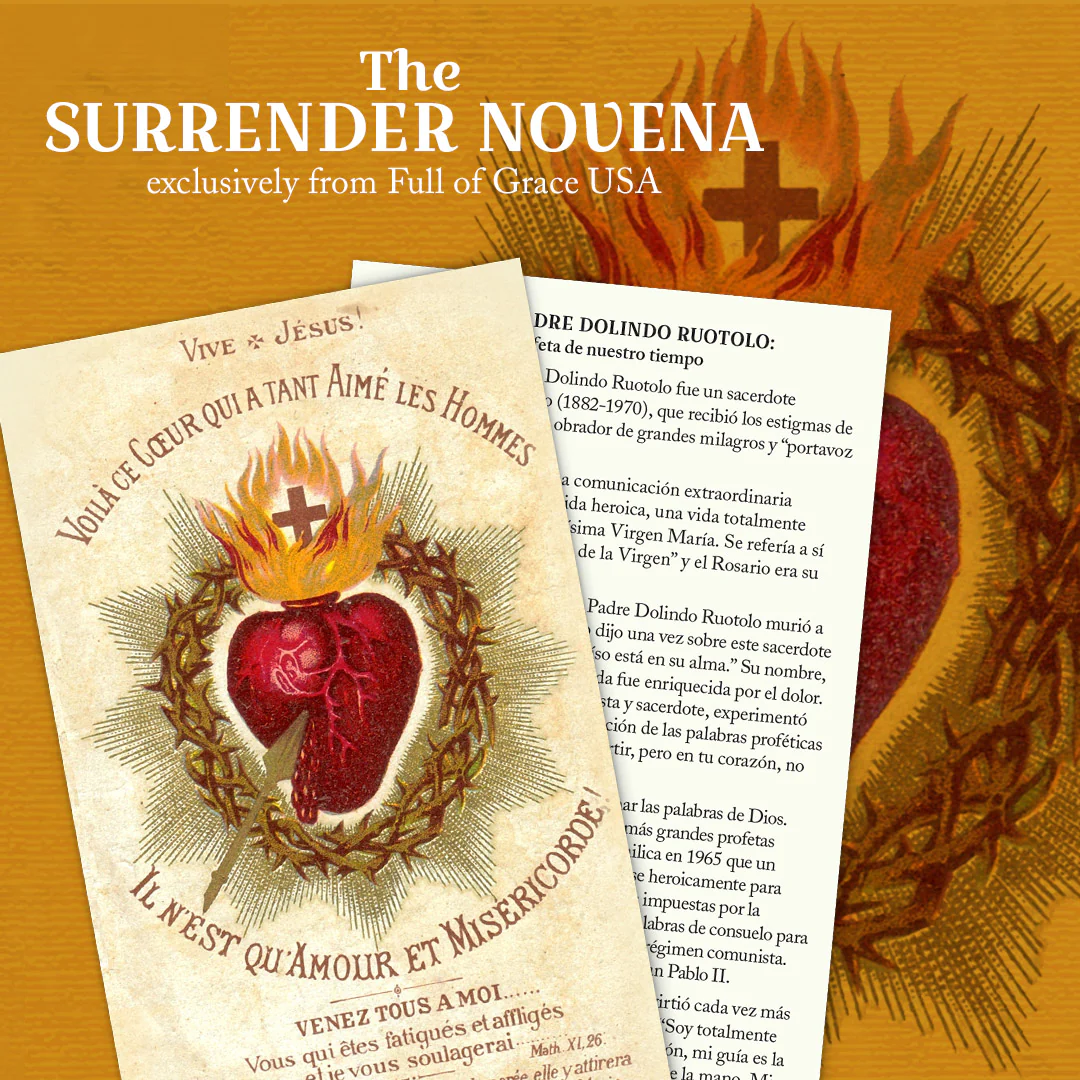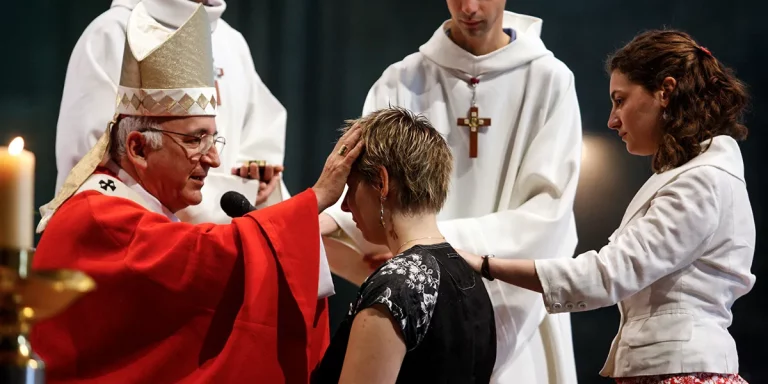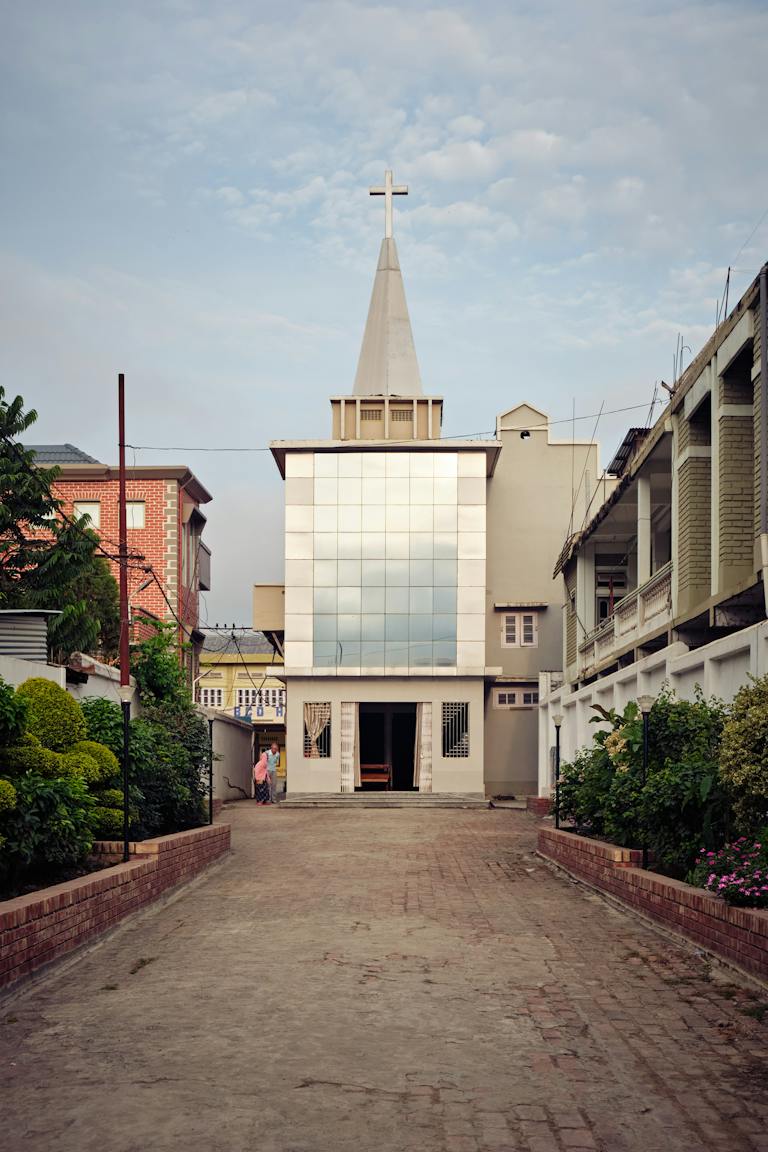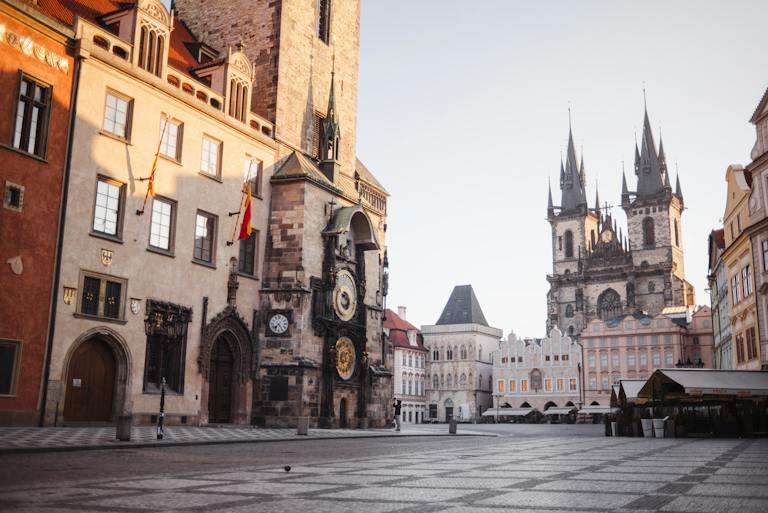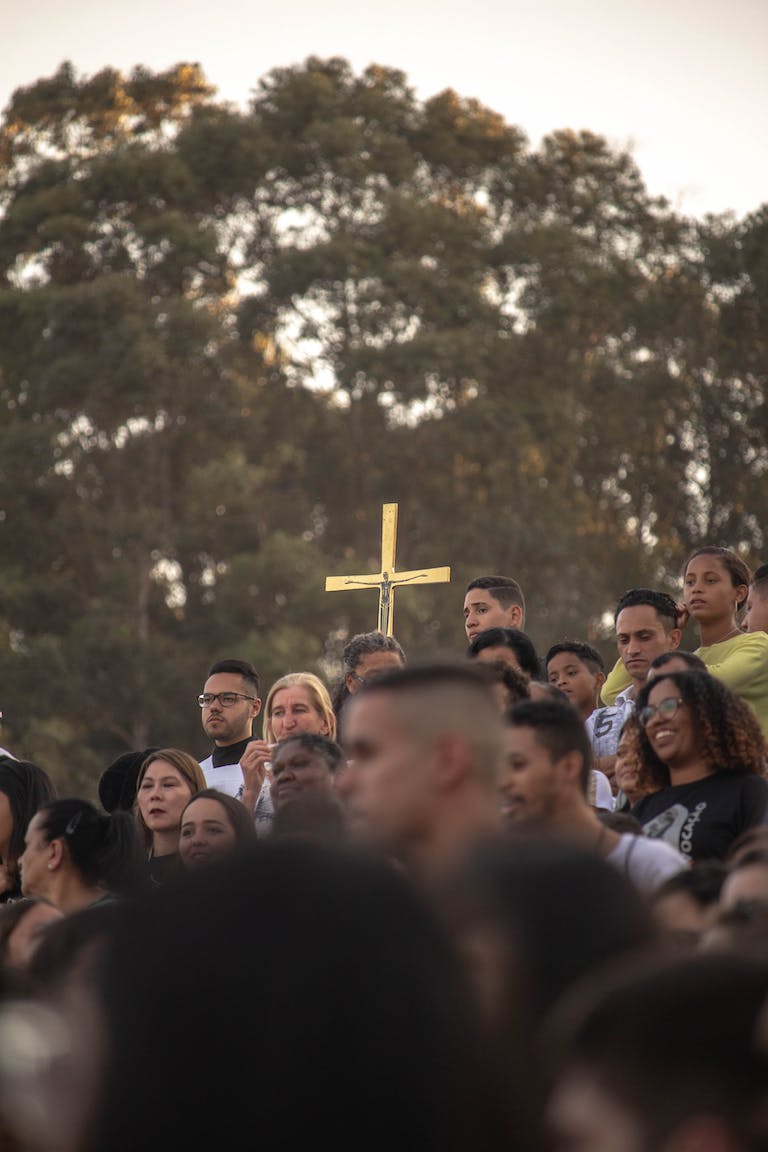Is the Surrender Novena approved by the Catholic Church?
The surrender novena, also known as the novena of surrender to Jesus, is a popular Catholic devotion that involves saying a specific prayer for nine consecutive days, asking for guidance and help in surrendering oneself fully to God. There is some disagreement over whether the Catholic Church has officially endorsed this novena.
What is the Surrender Novena?
A novena is a beloved Catholic devotion that involves saying special prayers for nine straight days. Novenas are often prayed leading up to important feast days or holidays, such as Christmas or Easter. The surrender novena, as the name suggests, focuses specifically on surrendering and submitting ourselves to God’s will.
The most well-known version of the surrender prayer goes as follows:
“O Jesus, I surrender myself to You, take care of everything!”
This short yet powerful prayer is recited every day for nine days in a row. The person making the novena also adds a separate petition each day asking for a specific intention or grace from God.
The Origins and Early History of the Novena
The precise origins of the surrender novena are unclear. Popular belief holds that Father Don Dolindo Ruotolo, an Italian priest who lived in the first half of the 20th century, created it first. However, there is no historical evidence that Fr. Ruotolo wrote the novena. The prayers are remarkably similar to the concept of “surrender” that another Italian priest, Fr. Lorenzo Scupoli, wrote about in his 16th-century spiritual classic The Spiritual Combat. So it’s possible the novena grew out of Fr. Scupoli’s teachings rather than originating with Fr. Ruotolo.
In any case, the novena was popularized more recently, likely sometime around the 1940s and 50s. Stories spread of miraculous healings and conversions among people who prayed the surrender novena. But it does not appear it received any official Church approval.
Is the surrender novena officially approved?
Given its unofficial origins, the surrender novena does not have any formal approval from the Catholic Church. When a novena, prayer, apparition, or private revelation receives approval, it means that the Church has thoroughly investigated it and deemed it spiritually safe for the faithful. An approval essentially says the Church does not find anything contrary to the Catholic faith in the devotion or message.
It’s important to note that lack of approval does not necessarily mean the church finds issues with the prayer or considers it harmful. Individual religious figures wrote a lot of beautiful Catholic prayers and chaplets, which they distributed orally rather than through formal channels. However, without an exhaustive vetting process, the Church cannot actively encourage or endorse its widespread use the way approved devotions are promoted. For example, hugely popular Church-approved devotions include the Divine Mercy Chaplet, the Sacred Heart Novena, the Rosary, and Marian consecration.
The surrender prayer and novena seem theologically sound, calling on Jesus and seeking to conform our will to God’s. But again, since the backgrounds and origins weren’t officially investigated, we cannot say they have the church’s seal of approval.
Why isn’t the surrender novena approved?
There are a few potential reasons why the surrender novena never went through the approval process:
Lack of Historical Records
As a relatively modern devotion with hazy, uncertain origins, there may not have been enough historical documentation for the Church to thoroughly investigate the novena’s background. The church approval process usually requires traceable, verifiable records.
No Official Revelation Status
Sometimes prayers or novenas originate from Jesus or Mary appearing to privileged souls and revealing special promises or graces attached to the devotions. Such private revelations require extensive study to earn approval. The surrender prayer, however, does not seem to be associated with any church-vetted visionaries or apparitions.
No Miracle Verifications
Frequently, with approval, miracle reports are meticulously researched, verified by doctors and witnesses, and authenticated as having no scientific explanation before being connected to devotion. While miracle stories circulate about the surrender novena, none have completed the Vatican’s meticulous verification protocols.
Other Priorities
Finally, investigating newer devotions takes time and resources, something the Vatican must prioritize carefully. With only so much staff power devoted to these processes, major recognized apparitions (like Fatima and Lourdes) and devotions with established historical roots understandably take precedence.
The surrender prayer remains widely used and recommended in Catholic circles, despite its unofficial status. But again, we cannot consider it outright approved or encouraged by the church since it has not undergone a formal investigation.
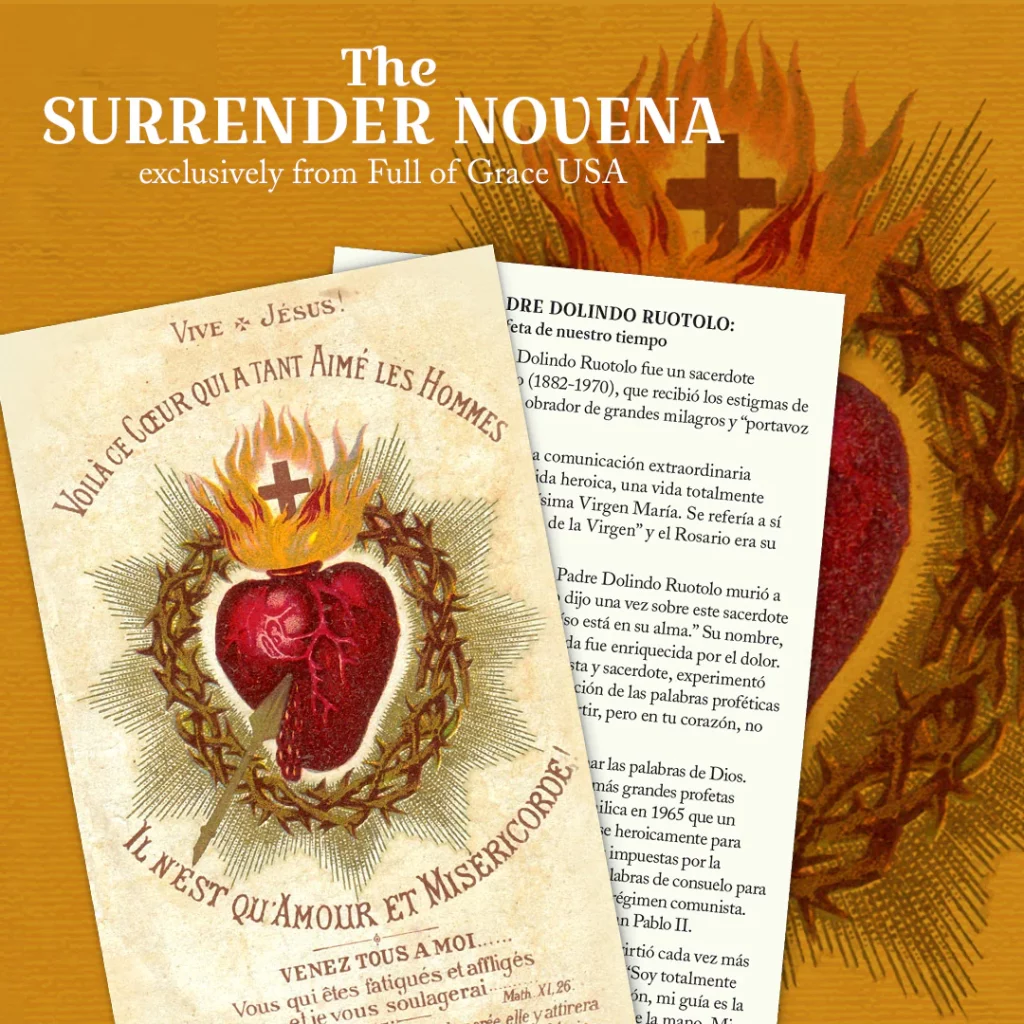
Perspectives from Catholic Leaders
Instead of outright approval, looking at Catholic thought leaders’ perspectives can provide helpful guidance. What do prominent bishops, priests, and theologians have to say about the surrender novena?
Several high-ranking Church authorities have referenced the novena positively in letters, books, and speeches, including Cardinal Óscar Andrés Rodríguez Maradiaga, Cardinal Nguyễn Văn Thuận, Archbishop Thomas Wenski of Miami, and Archbishop John Quinn of San Francisco. While falling short of an outright endorsement, their support gives the novena strong credibility in many Catholic circles.
Fr. Jacques Philippe, a renowned spiritual writer, actively promotes the use of prayer and novena among lay Catholics and religious sisters. Popular priest and author Fr. Michael Gaitley recommends the surrender novena at the end of his famous book Consoling the Heart of Jesus as a pathway to holiness by embracing God’s will.
However, some conservative Catholic theologians like Dr. Mark Miravalle advise proceeding cautiously with more obscure devotions that lack approval. Given its hazy history, they argue Catholics should focus instead on clearly authenticated revelations and solutions that have the Church’s full backing after careful investigation.
Signs Point to Likely Future Approval
While the surrender novena cannot claim official Church approval yet, many signs point to it potentially receiving formal backing down the road.
As it continues to spread rapidly among Catholics today, more scrutiny and study will likely follow. More dioceses appear open to examining their background and spiritual merits to decide if active promotion is warranted. If thorough inquiries uncover solid historical roots and verify any attached miracle claims, official approval could happen in the years ahead.
Recent Support From Major Catholic Groups
Major Catholic organizations are starting to actively spread the surrender novena among followers, indicating wider acceptance.
Magnificat, the popular spiritual companion published in multiple languages boasting hundreds of thousands of readers, featured the novena as the main meditation in its September 2021 issue. Magnificat has a strong reputation for sound Catholic theology vetted by respected clergy.
Similarly, Ascension Press, the world’s leading Catholic publisher under the guidance of the Augustine Institute graduate school, now promotes the surrender prayer in various books and Bible study programs oriented toward spiritual growth. Ascension markets mainly to mainstream English-speaking Catholics versus a solely traditionalist audience.
The novena even appears on Computing for Catholics (C4C), a large international Catholic apostolate focused on serving clergy and religious sisters through business technology mentorship. Their public website profiles the surrender novena as an authentic devotion following Catholic doctrine.
Such prominent organizations highlighting the novena lend strong credibility, given their screens for orthodoxy and suitability before recommending particular spiritual practices to followers.
Changing Approval Standards
Vatican requirements for approvals seem to be evolving to accommodate more modern revelations and devotions likely to enrich current believers versus only historical examples.
In the 2000s, the Church approved modern prayer revelations by 20th-century stigmatist Berthe Petit, who had visions of Jesus. This marked a shift from reservations about more recent visionaries.
Revelations by mystic Bl. Alexandrina da Costa in the 1940s earned approval decades after her death as documentation amassed over time. Hence, beyond verified history, ongoing positive impacts on Catholic spirituality now hold more sway.
Under its expanded approach, if the surrender novena substantially aids faith and alignment with Church teaching for today’s Catholics, formal backing could follow one day.
Ruotolo’s Potential Sainthood Cause
Finally, if Fr. Don Dolindo Ruotolo, frequently named the novena’s formulator, eventually gets beatified or canonized a saint, the surrender novena would likely earn approval alongside him.
Saints or blessed often have particular prayers or spiritual writings they authored and studied closely during their causes. Ruotolo had a reputation for outstanding theological insights and mysticism, and Pope Benedict XVI recognized his writings. So should his cause advance, it could pave the way for approving the novena.
Of course, a long vetting process would still occur, checking all historical records and requiring verified miracles linked to his intercession. But with sainthood in reach, Ruotolo’s spiritual practices would fall under prime consideration by the Vatican in due time.
Takeaways: What We Can Conclude
In summary, while widely circulated and supported in mainstream Catholic culture, the surrender novena currently lacks formal approval from the institutional Church. Without a thorough investigation into its history and faith merits, along with verified miraculous happenings, the Vatican cannot officially recommend it to all Catholics. Nor can any of its promised graces be guaranteed, as with fully approved devotions.
However, we have solid grounds for trusting the novena’s theological soundness and spiritual benefits, given respected clergy voices advocating its usage. Full formal approval may occur down the road as more study happens and credibly-linked miraculous events potentially come to light.
For now, Catholics can surely adopt the novena for private devotion with prudence. But more cautious believers may prefer focusing on clearly authenticated devotions bearing the church’s official seal until more certainty emerges.
Either way, lifting the core surrender prayer daily seems a beautiful practice for relinquishing self-will and seeking God’s grace regardless of the novena’s formal status. Just as countless Catholics report special blessings from praying unapproved chaplets or rosaries composed by ordinary laity.
Wherever the Vatican’s ongoing scrutiny and discernment process lands in the years ahead, the ideal disposition remains the novena’s overriding theme – striving to surrender ever more fully to our loving Creator.

